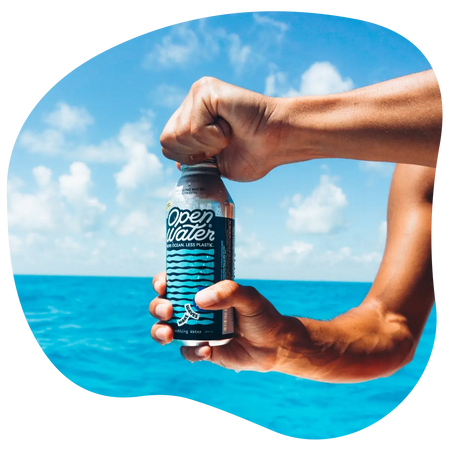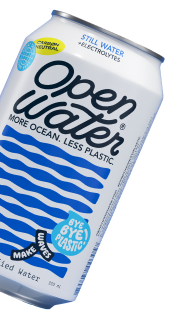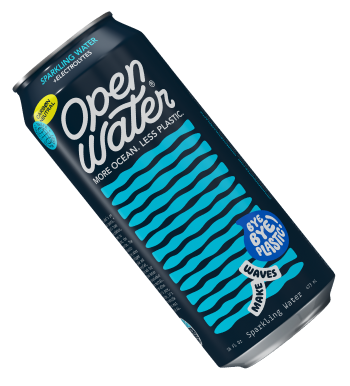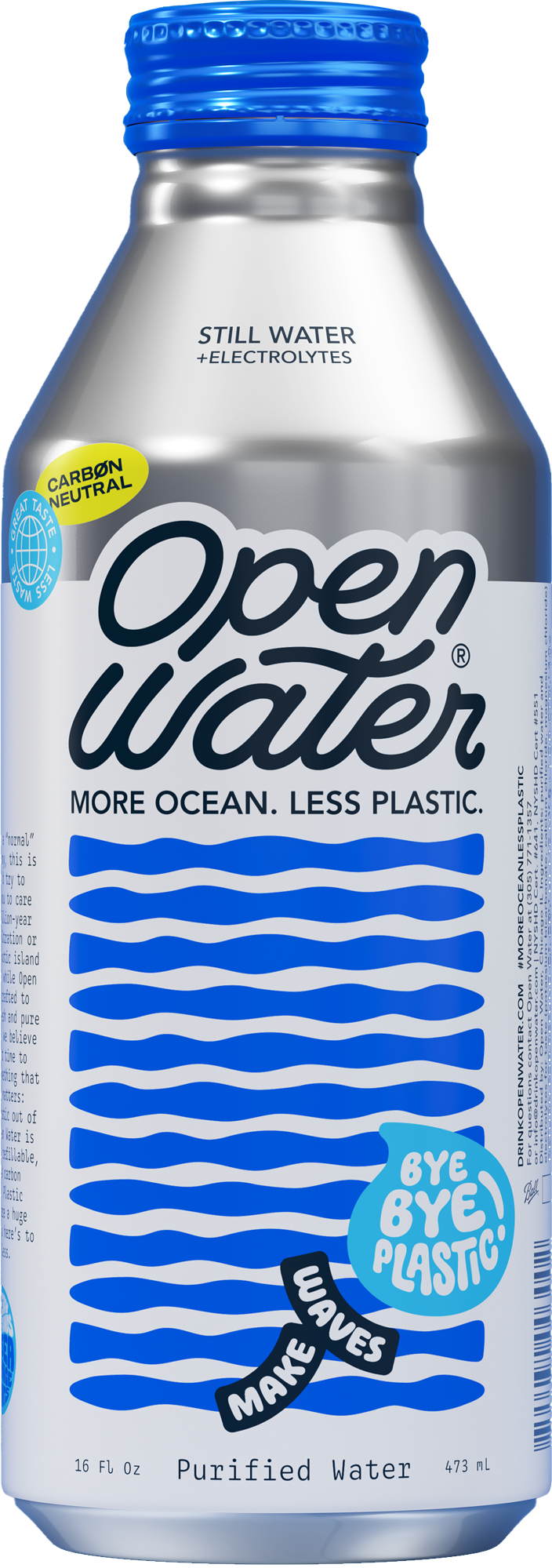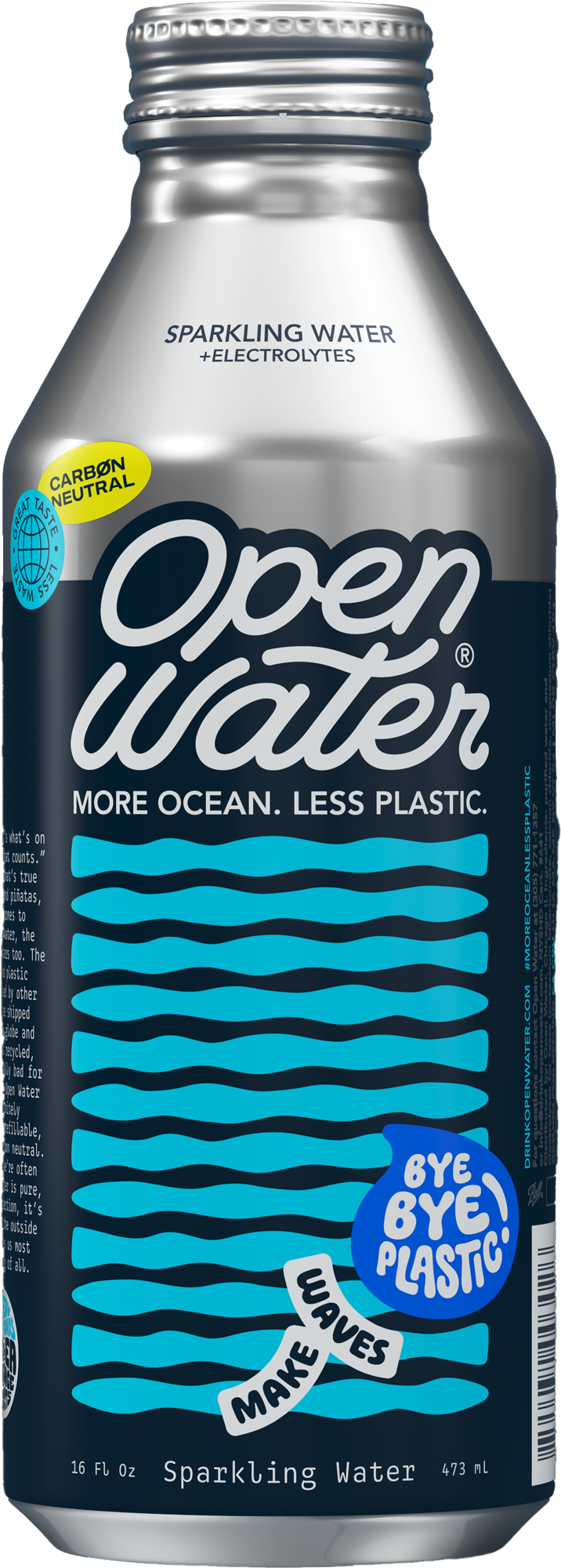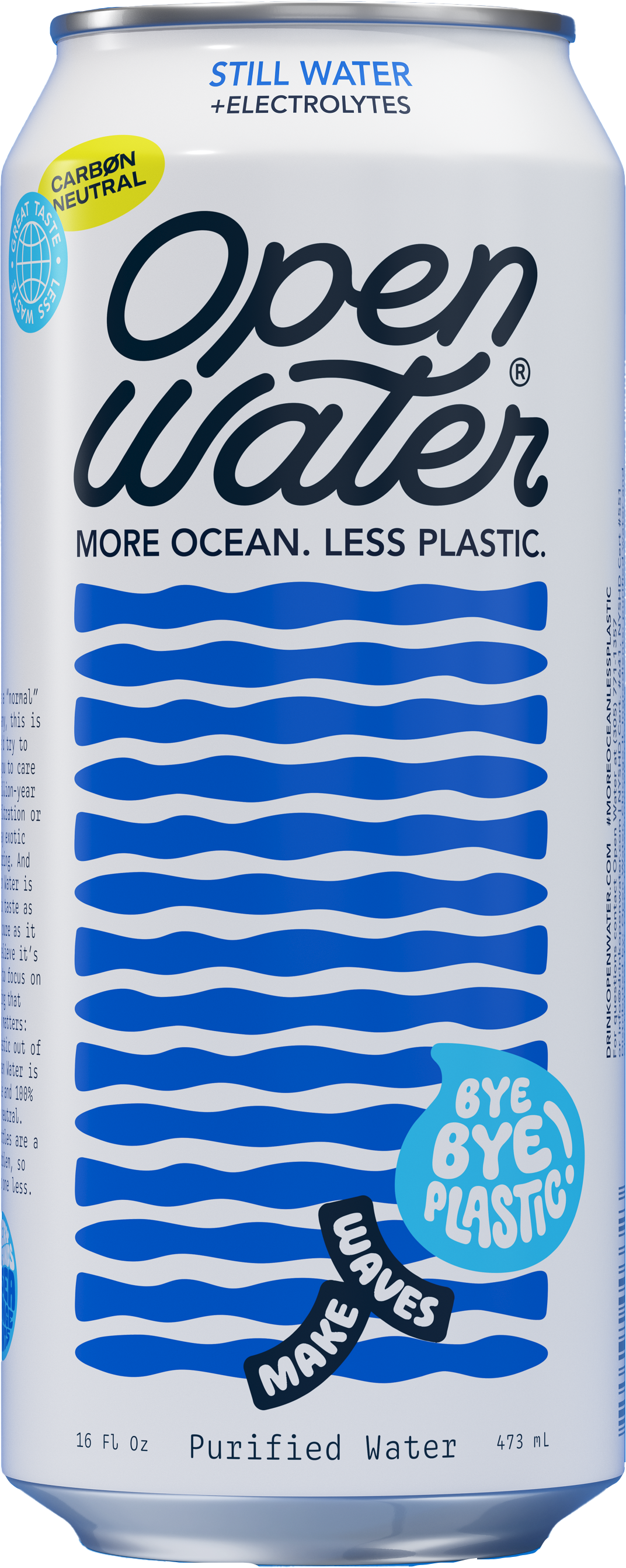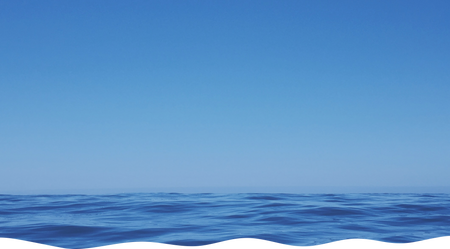
making real impact
1% For the Oceans
Open Water exists for healthy, plastic-free oceans. Our charitable mission is to protect and preserve the world's oceans through conservation efforts, education, and community engagement. That’s why we donate a portion of every can sold through initiatives like our Sea Change Grants.
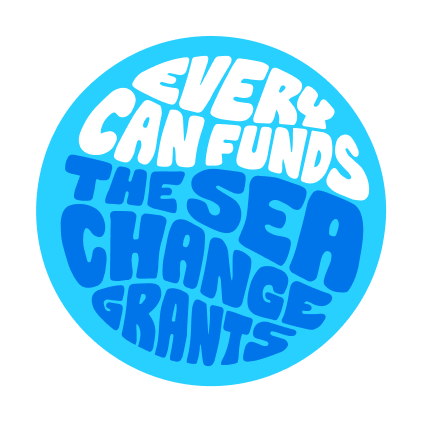
Impact Comes in Many Forms

plastic-free events
We work with event organizers to make it as easy as possible to swap out plastic bottled water.

ADVOCACY EFFORTS
We support legislation that aligns with our sustainability values.

we buy offsets
We measure our emissions and buy the equivalent amount of offsets.

volunteer hours
Open Water employees are given paid time off to support nonprofit organizations they care about.






The Sea Change Grants
Our Sea Change Grant program is part of Open Water’s commitment to conserving what makes our blue planet, well, blue: our oceans!
The Sea Change Grants is our open grant program dedicated to supporting grassroots ocean conservation efforts in the U.S. Through the program, we aim to empower organizations that are actively working to protect and preserve our oceans for a post-plastic future. Together, let's make a sea change for our oceans. Click to sign up for Sea Change program updates or...
GRANTS IN ACTION
- 01
- 02
- 03
- 04
- 05
- 06
- 07
CARE for the Cape & Islands™ mission is to inspire stewardship to preserve and protect the natural environment, cultural and historical treasures of Cape Cod, Martha’s Vineyard and Nantucket.
Urban Rivers' mission is to transform urban waterways into urban wildlife sanctuaries using floating wetlands that provide shelter and food for a diverse range of mammals, birds, reptiles, and amphibians, and improve the overall health of the ecosystem.
The International SeaKeepers Society supports marine science and conservation by using privately owned yachts as platforms for oceanographic research, educational outreach, and marine conservation.
The Surfrider Foundation is dedicated to the protection and enjoyment of the world’s ocean, waves, and beaches, for all people, through a powerful activist network.
WILDCOAST envisions a society in which ecologically sensitive and globally significant coastal and marine ecosystems and wildlife are conserved, restored, and sustained for future generations.
Audubon Nature Institute believes in leaving things better than we found them. Their goal is to educate, empower, and inspire everyone to do good by taking action to protect nature and wildlife.
The Alliance for the Great Lakes is a nonpartisan nonprofit working across the region to protect our most precious resource: the fresh, clean, and natural waters of the Great Lakes.







FAQs
Have other questions? Email us at seachange@drinkopenwater.com
Who can apply?
Sea Change Grants accepts applications from 501(c)3 designated nonprofit organizations located and working in the United States.
When will the grant application window (re)open?
The 2025 grant cycle is currently closed. Please check back here, follow us on LinkedIn and Instagram @drinkopenwater, and sign up here for updates on future grant cycles.
What is the typical size of the grants?
Grants typically range from $500 to $2,500, depending on the scope of the project, available funding, and number of applications received.
Can previous recipients apply?
Yes, previous grant recipients are eligible to apply for additional funding for new projects or initiatives.
How can I apply for a Sea Change Grant?
The application process goes like this:
1. Letter of Inquiry (LOI): Interested applicants must first submit a brief LOI form outlining their project or initiative or general funding request.
2. Full Proposal: Selected applicants will be invited to submit a detailed full proposal.
3. Review and Selection: Proposals will be reviewed and grants will be awarded based on merit, alignment with our funding priorities, and available funding.
If I receive funding, does the project need to be completed this year?
The timeline for project completion will be specified in the grant agreement. Projects are typically expected to be completed within 6 to 12 months of receiving funding.
What types of projects are eligible for funding?
Projects that directly contribute to advancing ocean conservation efforts within Open Water’s funding focus areas are eligible for funding. This includes: ocean/lake/riverine habitat restoration; plastic pollution prevention and cleanup; youth engagement; and advocacy.
How does Open Water define ocean conservation?
Ocean conservation refers to the protection and preservation of oceans and marine ecosystems. It involves efforts to reduce human impacts on the ocean environment, such as pollution, habitat destruction, and climate change, in order to maintain the health and biodiversity of marine life and ecosystems.
When is the application deadline? When will I be notified?
The 2025 grant cycle is currently open! The timeline for applications and awards is:
• January: Application open
• February: Applications reviews and grantees selected
• March: Grantees notified and funds awarded
Have additional questions?
For questions about the Sea Change Grants program, please contact seachange@drinkopenwater.com.
learn more
OUR IMPACT

Well... what about emissions?
Open Water measures, reduces, and offsets its emissions every year.
Learn More
So... what about cartons?
They’re recycled less often than plastic bottles. Here’s the cold, hard truth.
Learn More


So…where does the water come from?
Sourced as locally as possible to minimize transport emissions.
Learn Morebye, bye plastic
SHOP OPEN WATER
Ultra-purified, electrolyte-packed canned water in BPA-free aluminum packaging.
